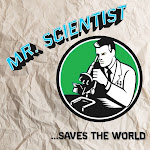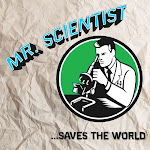Pollution
Pollution in the environment and at work, as well as a couple of customary risks, tremendously influence our prosperity, and on occasion lead to threatening development, according to the EEA web report 'Beating sickness — the occupation of Europe's ongoing situation'. With very nearly 3 million new patients and 1.3 million passings consistently across the European Union, harmful development adversely influences our overall population. The monetary costs are moreover colossal, surveyed at around EUR 178 billion of each 2018 alone.
By far most of these biological and word related dangerous development risks can be reduced by thwarting defilement and advancing approaches to acting, as demonstrated by the EEA study. Lessening receptiveness to these risks offers an effective and monetarily insightful way to deal with diminishing threatening development cases and related passings.
Strangely, the EEA explored the associations among dangerous development and the environment, researching the latest sensible evidence on air defilement, radon, brilliant radiation, reused smoke and engineered substances. The report evaluates that environmental and word related takes a risk with lie behind around 10% of harmful development cases in Europe.
Virginijus Sinkevičius, EU Commissioner for the Environment, Fisheries and Oceans, said: "The EEA report includes that an over the top number of dangerous development cases have a principal natural explanation. Luckily we can act now to cut defilement and thwart passings. With the Zero Pollution desire of the European Green Deal we can convey monetarily clever harmful development neutralization benefits by reducing receptiveness to disastrous defilements. What is better for the environment is moreover better for us."
Stella Kyriakides, EU Commissioner for Health and Food Safety, expressed: "Reliably in Europe, a normal over a fourth of a million lives are lost to environmental related harmful development. Contravention will constantly be ideal over fix, and as a part of Europe's Beating Cancer Plan, we have genuinely vowed to diminish unfamiliar substances in water, soil and air. Simply this week we passed an achievement recommendation under our Farm on to Fork Strategy to reduce the use of pesticides with half by 2030. The revelations of the European Environment Agency show clearly how the sufficiency of our planet and the prosperity of our occupants are solidly interlinked. We truly need to work with nature, not against it."
Hans Bruyninckx, EEA Executive Director, said: "We see the impact tainting in our ongoing situation has on the prosperity and individual fulfillment of European occupants and that is the explanation thwarting pollution is so vital for our thriving. Cutting tainting through the EU's Zero Pollution Action Plan and the Chemical Strategy for Sustainability too solid areas for as of other existing EU courses of action would go very far to diminish dangerous development cases and passings. This would be an effective interest in our occupants' success.
Air contamination (both indoor and outside) is connected to around 1% of all malignant growth cases in Europe and causes around 2% of all disease passings. For cellular breakdowns in the lungs alone, this ascent to 9% of passings. Ongoing examinations have recognized the relationship between long-haul openness to particulate matter, key air contamination, and leukemia in grown-ups and kids.
Radon and bright radiation additionally contribute altogether to the weight of disease in Europe. Indoor openness to radon is connected to up to 2% of all disease cases and one of every ten cellular breakdowns in the lungs cases in Europe. Regular bright radiation might be liable for up to 4% of all malignant growth cases in Europe. Specifically, the rate of melanoma, a serious type of skin malignant growth, has been expanded across Europe throughout recent many years.
Openness to recycled smoke might expand the general gamble for all malignant growths by up to 16% in individuals who have themselves never been smokers. Around 31% of Europeans are presented to recycled tobacco smoke at home, working, during recreation, in instructive establishments or in open settings.
Certain synthetic substances utilized in European work environments and delivered into the climate are cancer-causing and add to causing disease. Besides, a few of these synthetics are known or thought to prompt malignant growth in numerous organs, including lead, arsenic, chromium, cadmium, acrylamide, pesticides, Bisphenol An, and per-and polyfluorinated alkyl substances (PFAS).
All types of asbestos are notable cancer-causing agents, related to mesothelioma and cellular breakdowns in the lungs, as well as laryngeal and ovarian tumors. While the EU prohibited asbestos in 2005, it stays present in structures and foundations promoting the openness of laborers engaged with redesign and destruction work. Likewise, malignant growths keep on showing numerous years after openness, with asbestos assessed to represent 55-88% of word-related cellular breakdowns in the lungs.
Europe's Beating Cancer Plan perceives the job of natural and word related takes a chance in driving disease and the possibility to save survives powerful counteraction procedures. In accordance with this goal, the Zero Pollution Action Plan targets decreases in air and water contamination, meaning to lessen human openness to ecological contamination and diminish wellbeing influences, including the natural and word-related weight of malignant growth.
The EU has previously gone to intense lengths on air contamination, under the National Emissions decrease Commitments (NEC) Directive and the Ambient Air Quality Directives, which sets air quality guidelines for Europe. The European Commission has started a modification of the surrounding air quality mandates, pointing, in addition to other things, to adjust the air quality norms all the more intimately with the most recent air quality rules from the World Health Organization.
The Chemical Strategy for Sustainability means to boycott the most hurtful synthetics in items, including those that cause disease, and to encourage the utilization of synthetic compounds that are protected and manageable by the plan.
On radon, the Basic Safety Standards Directive has presented lawfully restricting necessities on the insurance from openness to normal radiation sources. It commands the EU Member States to lay out public radon activity plans. Other EU activities incorporate planning European endeavors to handle recycled smoking and bringing issues to light of the risks of bright radiation.






